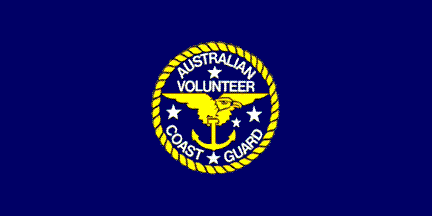Volunteer Coastguard - What Without Them?
by Sail-World on 12 Jan 2006

Australian Volunteer Coast Guard Media Services
The great support that Australian Volunteers offer to boats doing coastal passages was recognised in New South Wales recently when NSW Maritime announced that $740,000 would be provided in grants this year to the volunteer services.
CEO Chris Oxenbould made the announcement, adding, “Last year the volunteer marine rescue groups performed almost 3000 assists, including rescues, for boaters on State waterways. They also assist NSW maritime with managing major aquatic events such as the Sydney to Hobart yacht race, New Year’s Eve on Sydney Harbour and the Bridge to Bridge water-ski race on the Hawkesbury.?
The grant monies help provide replacement boat and radio upgrades, and are funded by the 440,000 people who pay boating fees in NSW. However, the Coastguard still relies heavily on your support in the form of memberships and income from training programmes to keep their fine service going.
You can become a member of Coastguard ?there are advantages for you, and more support for them. See http://www.coastguard.com.au/main.htm!Australian_Volunteer_Coastguard!same
They also operate excellent courses in all states in Basic Seamanship and Small Boat Handling, Marine Radio, and Coastal Navigation. For up to date course information and dates, click http://www.coastguard.com.au/courses.htm!HERE!same
But most importantly, whenever you take a coastal trip, you’d be crazy not to take advantage of their wonderful tracking service, and here’s what happens:
1. You log on with the radio base on departure, giving basic, critically important information. (See below for details) This also confirms the performance of the radio in both transmit and receive.
2. The radio base advises the next Search & Rescue Co-Ordination Centre (SARcc) along the intended voyage as well as the radio base at the intended destination.
3. The vessel is requested to maintain a listening watch on the designated frequency and given a designated time / position to make next contact.
4. As the vessel leaves the radio coverage area of a base, it is handed over to the next radio base along the voyage and eventually to the base at the intended destination (which is aware of the vessel & ETA (estimated time of arrival) as a copy of the OTS (offshore tracking sheet) was sent (by fax or email) at the commencement of the voyage to this base).
The information that you must give to Coastguard or Coastal Patrol at the time of first logging in is designed to identify lost boats quickly and easily, and to minimise the search area:
Registration Number of the Boat
Your Call sign
Description of the boat ?Name, type of boat, colour of hull, length
Number of Persons on Board (commonly shortened to POB)
Mobile telephone if available
Shore contact (next of kin?)
Location
Destination
Time of departure
Estimated time of arrival
A good idea is to place a label (Dymo etc) stating your vessel registration number and call sign beside the radio. Scrambling for the numbers when you need them just adds a touch of panic to the process - Coastguard radio operators admit with amusement that it is common for the radio to “go quiet?when the Registration number is requested, as the skipper has sent someone forward to hang off the bow to read the registration number.
Making the support service work, however, is totally dependent on you and everyone else maintaining the requested radio contact schedule and providing an accurate position with each scheduled radio contact.
It is also critical that the radio base or SARCC (Search and Rescue Co-ordination Centre) is advised of any interruption to the voyage (eg: unscheduled layover at an intermediate port) or the abort of a voyage due to weather etc.
Failure to advise of such changes will result in the vessel being reported as “overdue?and a Search & Rescue activated.
Another handy tip is to give the this reporting job to someone who is less experienced with radio calling, to give them practice when the job is not urgent or time critical.
The NSW Coastguard must be one of the finest volunteer organisations around. They deserve your support, and you and your crew deserve the security that comes with someone knowing as near as possible where you are at every stage of your coastal cruise.
If you want to link to this article then please use this URL: www.sail-world.com/20676